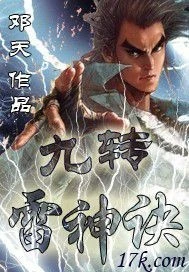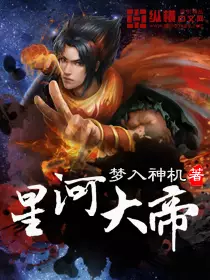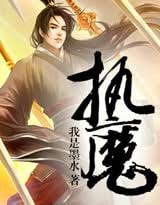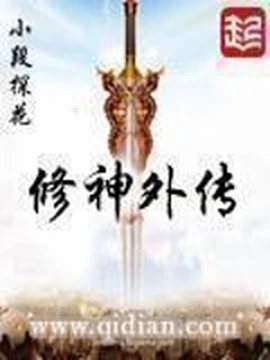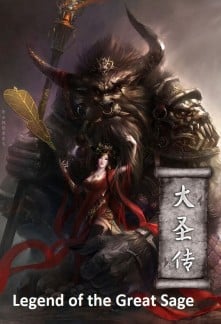The Story in 3 Sentences
A legendary demon phoenix cultivator meets his end at the hands of his beloved, only to find his soul forcibly merged with a young noble bearing his name, creating a being forged from betrayal and loss.
This new, fractured Feng Feiyun embarks on a treacherous path of cultivation and survival, navigating a world of elegant beauties and ruthless heavens, his journey fueled by a thirst for vengeance and the struggle to reclaim his shattered identity.
His direction shifts from mere survival to a grand, defiant rebellion against the cosmic order, ascending through realms of power while entangled in complex relationships, ultimately challenging the very heavens that preside over his tragic fate.
Why It Stands Out
1. A Phoenix Forged in Betrayal’s Fire
The core premise isn’t just rebirth; it’s a violent, unwilling fusion of souls. The protagonist doesn’t get a clean slate but carries the crushing weight of his predecessor’s murder and heartbreak, making his initial vulnerability and subsequent rise uniquely poignant and driven by raw, personal trauma rather than simple ambition.
2. The Harem’s Heart and the Plot’s Pulse
Beyond the typical tropes, the women surrounding Feng Feiyun are noted for possessing distinct, likable personalities that avoid mere cliché, adding genuine emotional complexity and charm to the narrative. The story balances dark, tragic undertones with comedic moments and well-written action, creating an engaging, multifaceted experience that keeps readers invested.
3. Defiance Woven into the World’s Fabric
The setting isn’t just a backdrop for cultivation; it’s a stage for open rebellion against celestial authority. The presence of cultivators actively fighting the heavens establishes a pervasive atmosphere of risk and revolution, elevating the stakes and giving the protagonist’s personal vendetta a grand, almost mythic, context within a world that thrives on challenging fate itself.
Characters That Leave a Mark
There’s Shui Yueting – once hailed as the world’s most beautiful woman, her act of killing Feng Feiyun reveals a terrifying, heartless depth that sets the entire tragic saga in motion, making her betrayal the foundational wound the protagonist must overcome.
You’ll meet Princess Luofu, who as the cherished daughter of the Jin Dynasty’s Imperial Concubine Hua, wields supreme talent and imperial privilege, becoming a complex figure whose interactions with Feng Feiyun add layers of political intrigue and personal challenge to his journey.
And Ling Donglai? They’re the prodigy of the Divine Martial Army, a fifteen-year-old Heaven’s Mandate cultivator whose incredible talents and position under the Furious Marquis make them a formidable peer and potential rival on the treacherous path of cultivation.
The Flaws Fans Debate
The revenge plot, particularly its execution and the protagonist’s actions driven by it, is frequently cited as problematic by readers, creating a point of contention despite the overall engaging narrative.
Some find the story’s beginning notably dark and heavy, which can be a barrier to entry before the narrative’s more varied tones and potential fully emerge.
The sheer length and ongoing nature of the novel can lead to pacing issues or perceived inconsistencies, with some readers noting the protagonist seems perpetually overwhelmed by enemies even after significant progression.
Must-Experience Arcs
Ch. 1–50: The Soul’s Fusion and First Steps – Witness the brutal betrayal, the forced merging of souls, and the new Feng Feiyun’s desperate struggle to adapt, survive, and grasp the first threads of power in a hostile world, establishing the core trauma and initial motivations.
Ch. 150–300: Rising Through the Ranks and Royal Encounters – Follow Feng Feiyun as he gains strength and notoriety, navigating complex political landscapes and encountering key figures like Princess Luofu, marking his transition from a reactive survivor to an active player in the realm’s power struggles.
Ch. 1000–1200: Challenging the Heavens’ Order – Experience the culmination of his ascent as Feng Feiyun, now a force to be reckoned with, directly confronts the celestial powers and ancient secrets, embodying the world’s spirit of rebellion and pushing towards his ultimate confrontation with fate and his past.
Killer Quotes
“If a man has not truly fallen in love with a woman, then his fall cannot be attributed to her.”
“At least I had an ‘intimate’ relationship with her, and I didn’t lose everything.”
Cultural Impact
The novel has cultivated a dedicated, if sometimes divided, fanbase who appreciate its unique blend of dark tragedy, harem elements, and defiant xianxia action, often recommending it despite its noted flaws or lower ratings.
Its premise of soul fusion after betrayal has sparked numerous discussions and theories online, particularly around the nature of the protagonist’s identity and the eventual resolution of his quest for vengeance.
Fans frequently engage with the complex character dynamics, especially the roles of Shui Yueting and Princess Luofu, debating their motivations and impacts on the protagonist’s journey across various reading platforms.
Final Verdict
Start Here If You Want:
A protagonist whose power is born from profound, personal tragedy and a burning need for retribution.
A xianxia world that actively encourages and showcases rebellion against divine authority, making every cultivation breakthrough feel like an act of defiance.
A harem narrative where the female characters are praised for having distinct, engaging personalities that contribute meaningfully to the plot and the protagonist’s development.
Study If You Love:
Exploring narratives of identity formed through trauma and fusion, examining how a character reconciles multiple pasts and motivations.
The subversion of rebirth tropes, where the second chance is not a gift but a violent imposition, forcing the protagonist to grapple with inherited pain.
The intricate world-building of xianxia novels that blend martial progression with cosmic politics and the philosophical implications of defying heaven’s will.
Avoid If You Prefer:
Stories where the revenge plot is straightforward and morally unambiguous, as this novel’s approach is noted to be complex and potentially problematic.
Novels with consistently light-hearted or purely comedic tones, as the story begins with significant darkness and maintains serious, tragic undercurrents.
Shorter, completed narratives with tightly controlled pacing, as this ongoing epic’s length can lead to slower sections or perceived inconsistencies over its 1200+ chapters.

